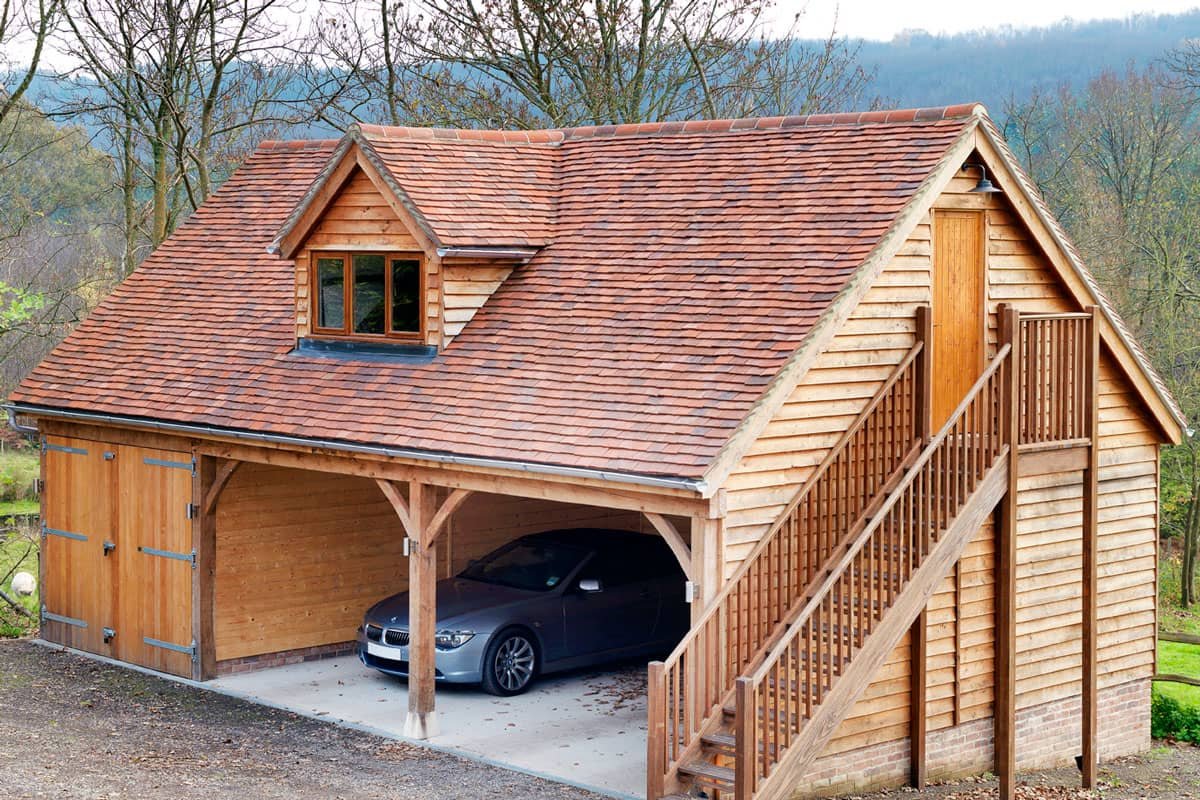Why Build with Douglas Fir Wood?
Douglas Fir wood stands out as one of the most versatile and reliable building materials available today. Its combination of strength, durability, and unique visual appeal makes it a preferred choice for a myriad of construction projects, both indoor and outdoor. Whether you're an architect, builder, or DIY enthusiast, understanding the many advantages of Douglas Fir can help you make informed decisions about your building materials.
In this blog, we'll explore what makes Douglas Fir so special, from its remarkable characteristics to its practical applications and sustainability, and discover why it might be the perfect fit for your next project.
What is Douglas Fir Wood good for?
Douglas Fir is hugely popular as a building material – and rightly so! It has both the strength and a distinctive appearance that make it an ideal material for a wide range of indoor and outdoor construction projects, such as cladding, flooring, decking, pergolas and more.
Douglas Fir is frequently used in building projects because of its universally recognised strength, durability, and ability to withstand the harshest weather conditions. It is very straight grained and performs best in straight frames. The timber is more stable, predictable and 30% lighter in weight than oak and, as structural beams, offers a cost-effective alternative.
Read on to learn more about the benefits of building with Douglas Fir.
Douglas Fir cladding provided to Churchill College Cambridge. Read the case study here.
Douglas Fir Wood Characteristics
It has a unique appearance
Douglas Fir has a long grain pattern and a salmon pink hue when freshly cut, which mellows to a deeper reddish-drown colour over time. As Douglas Fir is stable and holds a decent edge when cut, its sharp edges and smooth surface make it an excellent choice for a contemporary space. It also combines well with steelwork to achieve spacious, clean-lined frames, resulting in a light and airy feel to the space. Douglas Fir dries well and will take surface finishes such as a wash, oil or wax, giving you more design options.
It is great for indoor and outdoor use
Although Douglas Fir is classed as a softwood, it’s incredibly tough. Its immunity to splitting and impressive natural ability to resist rot and other damage from moisture allow it to endure extreme weather conditions, making it a popular and versatile option when it comes to outdoor projects, such as cladding.
Douglas Fir’s strength and stability, resistance to damage/abrasions and attractive appearance also make it a valuable timber for internal structural beams and flooring.
It has impressive strength
Douglas Fir has an almost perfect weight-to-strength ratio and the highest strength rating of a softwood. It is strong enough to support up to 18kg per square foot, making it ideal for structural frames. Its strength increases with the use of metal connectors, which allow higher stresses to be applied safely with confidence. In domestic buildings, the main function of a truss is to transfer the weight of the roof to the walls and foundation. When architects and structural engineers look for the best timber for these types of load-bearing structural elements, many specify Douglas Fir.
WL West Timber’s homegrown Douglas Fir beams are available up to 7 metres, with section sizes up to 400 x 400mm depending on log availability.
It is widely available & sustainable
Douglas Fir is reported by the IUCN as being a species of least concern. We source our timber from a well-managed West Sussex estate just a few miles away, so our wood has a very low carbon footprint and is a truly sustainable option. Our Douglas Fir is available year-round and at a lower cost than oak.
Douglas Fir polo boards available at WL West Timber.
Does Douglas Fir Wood require treatment?
Another benefit of Douglas Fir is that it doesn’t need any treatment for external use and requires minimal maintenance after installation. Its natural resistance to decay and insect infestation makes it ideal for outdoor projects, withstanding extreme weather conditions without losing its structural integrity. This minimal maintenance requirement means Douglas Fir structures remain beautiful and functional with just occasional cleaning and inspection. Overall, Douglas Fir is a cost-effective and environmentally friendly choice due to its durability and lack of chemical treatment needs.
Source UK Douglas Fir wood
Do you want to know more about how you might use native Douglas Fir in your upcoming building project? Talk to one of our experts! We are always happy to help. Contact us via our website and one of our team will get in touch.






With increasing popularity, discover the properties and benefits of opting for European larch in your projects.